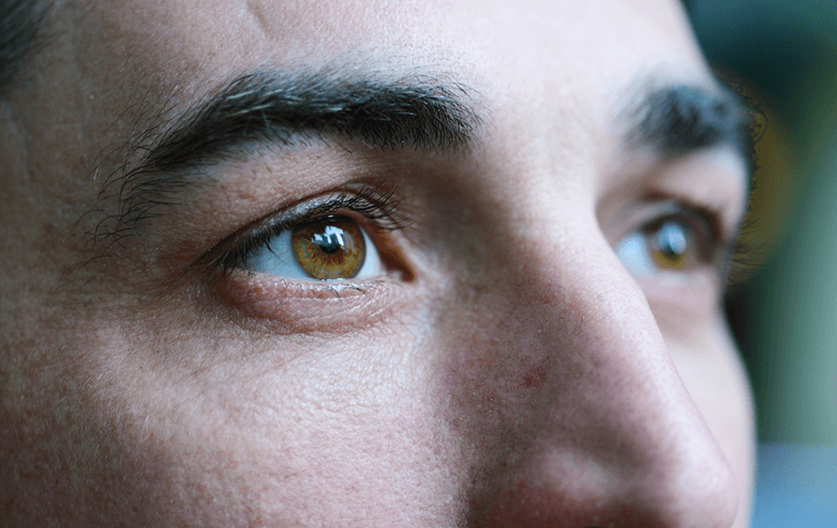- Home
- Mind & body
- What are eye floaters?
At CBHS we help you manage your health challenges. We believe in offering you the services, support and tools you need to live your best life.
Health and Wellness Programs are available to support eligible members towards a healthier lifestyle. Each Health and Wellness Program is subject to its own eligibility criteria.
Contact us for more information and to confirm your eligibility for a program.
What are eye floaters?

Have you ever noticed dark specks, lines, or little blobs floating around in your field of vision? If so, you’re probably seeing ‘floaters’. These are just tiny fibres that move around in the gel-like fluid, between the lens and retina in your eye. As they travel, they cast shadows on your retina, creating dark spots, known as floaters. Believe it or not, what you’re experiencing is very common, and most of us will see floaters at some point in our lives, especially as we age. They can be annoying, but the good news is that floaters are seldom anything to worry about.
How can I treat eye floaters?
There are currently no medications available to treat floaters. Some people swear by natural remedies like relieving stress through yoga, cutting out caffeine, and maintaining a magnesium-rich diet to get rid of these pesky spots, but so far, no studies have shown that these methods are effective.
In severe cases, floaters can be treated through one of two surgical procedures:
- Laser treatment, which involves zapping and vaporising the floater
- A vitrectomy, which drains and replaces the vitreous fluid in the eyes.
It’s important to note though, that there are risks associated with both procedures, so it’s best to consult your optometrist to see what is best for you.
However, even without treatment, your brain may adjust and in time, you won’t even notice them. In most cases, they just go away on their own.
When should I seek help?
Unusual changes in your vision can be a sign that you may have a more serious eye problem. If you notice a significant increase in the number of floaters, they begin to interfere with your vision, or you see the specks along with light flashes, you should see your optometrist as soon as possible.
To maintain healthy eyes, visit your local optometrist every year for a comprehensive eye test, and be sure to mention it if you're noticing floaters or any other changes in your vision.
All information contained in this article is intended for general information purposes only. The information provided should not be relied upon as medical advice and does not supersede or replace a consultation with a suitably qualified Health Care Professional.
Health and wellbeing
programs & support
You Belong to More with CBHS Hospital cover:
- Greater choice over your health options including who treats you
- Get care at home with Hospital Substitute Treatment program
- Free health and wellbeing programs to support your health challenges
Live your healthiest, happiest life with CBHS Extras cover:
- Benefits for proactive health checks e.g. bone density tests, eye screenings
- Keep up your care with telehealth and digital options
- Save on dental and optical with CBHS Choice Network providers
